The condition of waste disposal in India is a pressing environmental challenge. With a rapidly growing population and urbanization, the country generates an enormous amount of waste daily. Unfortunately, the waste management infrastructure in many cities and towns is inadequate to handle the volume, leading to significant issues. Improper waste disposal practices, such as open dumping and burning of waste, contribute to air and water pollution, soil contamination, and public health hazards. The lack of segregation and recycling facilities further exacerbates the problem.
To address this critical issue effectively, in the heart of Bangalore, a 99% women-led social enterprise, Bare Necessities Zero Waste Solutions, is revolutionizing the way we consume and approach sustainability. Inspired by a lifelong love for nature and a desire to combat environmental challenges, Sahar Mansoor founded Bare Necessities to promote a lifestyle that reflects her values of environmental consciousness and social justice. Driven by her desire to be part of the solution, Sahar embarked on her zero-waste journey in 2015, making incremental changes to her lifestyle. She founded Bare Necessities to create a platform that offered accessible, sustainable, and zero-waste alternatives for everyday personal care and household products. At Bare Necessities, it is not just about selling products; it's about promoting an earth-friendly lifestyle and encouraging mindful consumption.
Scroll down to read the full interview:
Q. How did the idea of Bare Necessities Zero Waste Solutions come about, and what inspired Sahar Mansoor to start this 99% women-led social enterprise?
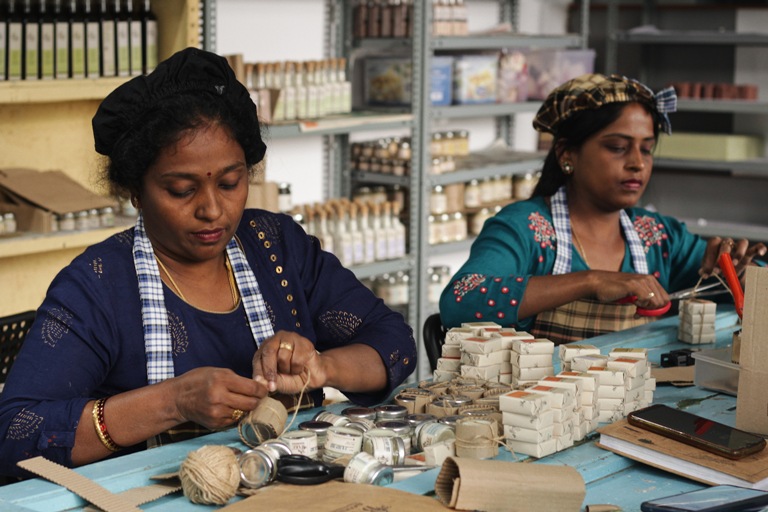 A. I think I have subconsciously been an environmentalist since I was a little girl. Growing up in Bangalore, my love for nature was fostered spending weekends in Cubbon Park with my Dad and two big sisters, climbing trees and mostly falling off of them. My Dad would never miss his morning walk in Cubbon Park. Holidays for our family meant road trips, jumping into waterfalls, swimming in the beach, early morning walks, soaking in the sunsets and sunrises. Having lost him when I was very young, being in nature continued to be one way of remembering him.
A. I think I have subconsciously been an environmentalist since I was a little girl. Growing up in Bangalore, my love for nature was fostered spending weekends in Cubbon Park with my Dad and two big sisters, climbing trees and mostly falling off of them. My Dad would never miss his morning walk in Cubbon Park. Holidays for our family meant road trips, jumping into waterfalls, swimming in the beach, early morning walks, soaking in the sunsets and sunrises. Having lost him when I was very young, being in nature continued to be one way of remembering him.
In 2012, when I was in my third year of college, I watched a video of Bea Johnson in Professor Chris Chapples’s World Religions and Ecology class. While I was blown away by her lifestyle, I remember conclusively dismissing it too. How could she afford to shop at ‘Whole Foods’? Was she free enough to make her own products? How could I have possibly lived a zero waste lifestyle while juggling three jobs, maintaining grades for my scholarship, having a fun social life and exploring a new city I came to call home?
Nevertheless, this course was a turning point in my environmental journey. I worked with my Dean to add environmental planning as my second major and took classes in environmental engineering, environmental ethics and policy. This nudged me to think deeper about our trash problem. It made me realise that we are subjects of an urbanisation-globalisation era, which is coupled with being caught in a web of convenience. Owing to these factors, we don’t think of personal trash and attribute it to a larger global problem, we have no control over.
It takes for trash to stink up our neighbourhood for us to think about trash. We don’t think about a plastic we use for 5 minutes, which then takes 700 years to start decomposing, which in the process leeches harmful chemicals into our soil and water, the same soil you are consuming your fresh veggies from!
My Cambridge and World Health Organisation (WHO) perspectives taught me that waste was an environmental issue, which it is. However, moving back home made me acknowledge that waste is a social justice issue as well. I moved back to Bangalore in 2015 and worked at a solar energy social enterprise called SELCO Foundation. I was working with a community from West Bengal, who were waste pickers. I spent time shadowing them and what I was most confronted by was the social justice issues of our waste problem! Every day thousands of waste pickers segregate broken glass, sanitary napkins and needles all with their bare hands. I wanted to stop being part of the problem. When I first faced the facts, I couldn’t believe how something as innocuous as our garbage could be negatively connected to so many of my personal and political concerns.
I wanted to stop being a part of the problem. My solution was to live a lifestyle that best reflects the values I cared about. I called myself an environmentalist and had studied the subjects, but I needed to live a life more congruent to my environmental and social justice values.
I started taking my first few steps in April 2015. The transition was incremental. When I ran out of soap, I learnt how to make my own, instead of buying store bought ones. However, I am still not zero waste – and I doubt I will ever be. It is good to know your boundaries.
In my zero-waste journey, I realized we lived in a world with LANDFILL destined products. 4.7 billion toothbrushes land up in landfills every year, and take 200-700 years to start decomposing. So every toothbrush you and I have ever produced is sitting on our planet somewhere!
In response to this problem, I wanted to create a company that mirrored the values of zero waste, ethical consumption and sustainability. I wanted to make it easy and accessible for other people looking to consume more mindfully and to encourage others to produce less waste. Thus, Bare Necessities was born.
At Bare Necessities, it’s not just about selling products. It’s about encouraging an earth friendly lifestyle.
Q. Can you elaborate on the innovative waterless formats used by Bare Necessities for personal care products? How do they contribute to an 80-90% reduction in energy, plastic waste, and carbon emissions?
A. The FMCG market is highly competitive and offers a plethora of homecare options for customers. The current hand wash and dishwash soaps options contain toxic ingredients with far reaching harmful effects to the environment. In Bangalore, we have been witnessing lakes spewing fire due to frothing, typically caused due to chemical surfactants and pollutants. Single-use packaging, made of plastic, ultimately lands up in the landfill or the environment - land or waterways. Plastic used takes over 700 years to decompose, in the process leaching harmful chemicals into the environment, which severely damages the natural ecosystem and surrounding biodiversity.
Conventional hand wash and dishwash soap contain 90% water and only 10% active ingredients. Customers are paying exorbitant prices to transport water, resulting in high carbon footprints. Our refill sachets help reduce transportation-related carbon emissions by 85%. Not only are our refill pouches packaged in compostable sachets, but we offer cork-sealed recycled and repurposed jars, with metal pumps that can be used to last a lifetime. By recycling glass from old wine bottles, we have been able to avoid using virgin glass. We avoided single-use plastic packaging, which consists of multi-layered plastic, posing a huge challenge with recycling and recovering, therefore disastrous to the environment! We are innovating with compostable packaging, essentially designing waste out of the system.
Q. What are some of the key challenges Bare Necessities faced while creating zero-waste alternatives to plastic-packaged personal care products, and how were these challenges overcome?
A. Since we were innovating a waterless alternative to conventional products, researching was a lengthy process. Sourcing earth-friendly ingredients posed a critical challenge. We have a modular circular packaging, which we worked to ensure was plastic free. Our compostable refill pouches are printed with vegetable dyes, instead of digital dyes, which are not compostable. A seemingly simple component such as printing pouches posed a challenge. While marketing, we took an awareness centric approach as opposed to a sales heavy approach.
In our rigorous pursuit of earth-friendly sustainable solutions, we invested copious time in research for product and packaging. Going against the grain with the concept, the ingredients and the packaging was challenging. Our design is rooted in the concept of circular economy as the glass dispenser can be used indefinitely and the refill pouches can be composted. Access to finance to execute something continues to be another barrier for a small and young social enterprise like us.
Q. How does Bare Necessities plan to achieve its goal of diverting 500 kgs of plastic by 2025? What strategies and initiatives are being implemented to reach this target?
A. We are building the Lush of India and on track to divert 5000 kilograms of plastic by 2025. Bare Necessities is creating zero waste alternatives to conventionally toxin formulated and plastic packaged personal care products; by doing so, we are addressing the largest global garbage of our lifetime.
Through our holistic, two pronged approach in the form of zero-waste products and our sustainability education initiative, our extensive R&D, our innovative waterless format of products, which results in the reduction of energy, plastic waste and carbon dioxide emissions by 80-90% compared to traditional alternatives.
As of 2023, we have sold 179,547 products, which has saved 103,096,156 plastic units either going into landfills or straight into the environment whether that is on land or into waterways. This ratio means that in 7 years of operation from July 2016 to March 2023, the social business has diverted 540,135.21 kilograms from landfills and the environment.
We are bringing innovation to an industry that has not seen any in the past 30 years.
Q. Tell us more about the Bare Learning school and its UNESCO recognition. How has it been empowering over 2.5 million people with actionable knowledge related to sustainable living and zero waste?
A. Through our education initiative, Bare Learning (that comprises workshops, sustainability consulting and online courses) and through market stalls, online media channels and other sources, the team at Bare Necessities helped to raise the awareness around the need for sustainable living throughout India.
Currently we have had a direct impact on 372,577 people and an indirect involvement with 1,743,449 through markets, talks and workshops.
'Zero Waste Living 101' aims to provide a comprehensive understanding of how to transition towards a zero-waste lifestyle. 'Building Blocks of Sustainability' delves deeper into the importance of the interconnectedness between people, planet, and profit in order to build a sustainable future.
Our 'Introduction to Circular Economy' online course offers a well-rounded understanding of circular economy. Looking at sustainable habits from living a zero waste lifestyle to adopting natural living practices, making healthy food choices and ultimately transitioning into carbon free living. By exploring these, we share unique insights into how the circular economy connects and nurtures all these sustainable practices.
We provide students with access to eye-opening research and data, interviews with well-known experts from various fields, over a dozen DIY videos for zero-waste living, and countless tips and tricks that they can learn from and incorporate into their lives.
Our online courses have directly engaged 376,238 people and the community is fast growing through individual sign-ups and corporate enrollments. Our courses have been rolled out globally to multinational corporation’s (MNC’s) such as Cognizant and MindTree.
Q. Could you share the success story of 'The Last Straw' project? How did Bare Necessities manage to tackle the single-use plastic straw menace and transition coconut vendors to organic coconut leaf straws?
A. This was a while ago, we implemented this project in 2019! Plastic straws are one of the most widely used materials, but often one of the sidelined when it comes to the pollution it causes. Did you know, around 8.3 billion plastic straws pollute the world's beaches? While a lot of us are aware of this issue, we wanted to raise awareness of the same among the people who may not have access to this information - our local coconut vendors. And thus, we launched the Last Straw Campaign.
With the help of Bare employees, interns, coconut vendors and consumers, we aimed to analyse the possibility of our coconut vendors transitioning away from plastic straws to organic coconut leaf straws.
Local coconut vendors in India are found on almost every street corner, sometimes multiple in the same street, selling around 1000 coconuts a month. It’s a place for conversation, a place to hydrate and is, importantly, a place for the inter-mixing of us diverse Indians. However, each coconut is sold with a single-use plastic straw which, post-consumption, is often either left by the roadside or is taken away and dumped in a landfill. They are then ingested by stray animals mistaking them for food, or end up in waterways polluting marine life.
Upon interacting with some of these vendors, we found that unawareness wasn’t their biggest issue, rather the affordability of sustainable alternatives was the most significant drawback.
In association with a Bangalore-based manufacturing unit that produced handmade straws from coconut leaves and funding from Lonely Whale, the Californian environmental organisation, founded by Adrian Grenier.
With their help, we were able to undertake a pilot project of sorts, where we could provide 15 vendors with these coconut leaf rolled straws made from fallen leaves, at the same price as plastic straws and use the grant money to cover the deltaWe changed the size of the straw to reduce costs for us throughout the project, in order to utilise the funding to the best possible level.
While this pilot project was a great kickstart to our vision of providing our local communities equal access to sustainable, zero-waste options, we would love to follow this up with a slightly larger model to reach out to more vendors across diverse communities and regions thereby, spreading the word.
As consumers, it is fundamental to consciously switch to reusable straws as a single person making the switch from plastic straws to reusable straws can keep an average of 600 plastic straws out of the environment every year. Turning to options like stainless steel straws, bamboo straws and even glass straws can help divert a significant amount of unnecessary waste from landfills and oceans. Climate change coupled with the series of unfortunate events that we’ve witnessed have really put a strain on the planet. Let’s not put our planet to the test anymore as this is the last straw (pun intended).
While we didn’t continue to work on this project actively; I was a great learning experience and an important foundation for us to continue building a circular enterprise.
Q. Winning the Green Entrepreneurship Award in 2023 must have been a significant achievement. Can you shed light on the impact this award has had on Bare Necessities' growth, visibility, and future prospects?
A. We are extremely grateful for having received the opportunity; winning the Green Entrepreneurship Award for the year 2023 has been a momentous achievement for Bare Necessities.
The award has amplified Bare Necessities’ visibility and credibility. We are sure that this will open the doors to new opportunities, collaborators and stakeholders. Thereby, allowing us to expand our reach and our impact in promoting sustainability. It has strengthened our credibility in the green entrepreneurship space, which we are sure will also attract like minded investors and stakeholders to further fuel our circular mission.
The recognition that we have received has been a huge source of motivation for our team members. It is heartwarming to see our team’s work being acknowledged and celebrated, creating a strong sense of purpose within our organisation. This achievement has helped translate our efforts to continue to make a positive change.
The Green Entrepreneurship Award has been a huge milestone for Bare Necessities, pushing us further to create a sustainable and eco-conscious future.
8. How is Bare Necessities collaborating with the IKEA Foundation to scale up its operations? What kind of support and resources does this partnership bring to further the mission of promoting zero-waste living?
A. Bare Necessities is honoured to collaborate with IKEA Foundation to further scale our operations. Additionally, it is an opportunity to promote our zero-waste living. We are sure this partnership will provide us with crucial support and resources to advance our solutions to combat the global garbage crisis.
We want to focus on the commercialisation and scaling up our zero waste products products and sustainability education initiative, Bare Learning. Our revolutionary waterless formats range of products reduce energy consumption, plastic waste and carbon emissions by 80-90%.
The partnership with IKEA Foundation will help achieve our ambitious target of seeking to divert 5000 kilograms of plastic by 2025. The support we receive will help our ability to create transparent and ethical sourcing practices and enhance our refill program. All of these initiatives will help raise awareness about sustainability.
We are proud to have a 99% women run manufacturing team. Women from underserved communities handcraft our personal care products. We not heavily focus on employing women, but have helped each of them with financial inclusion. Furthermore, we are committed to constantly upskill the women through additional skill training, workshops and computer courses among others. Product launches and development ensures that we increase our employment rate, thereby enabling more women from underserved communities to come into formalised working sectors. We are sure that this collaboration with IKEA Foundation will help propel our mission to achieve inclusive employment opportunities.
This partnership is a significant step towards achieving our goal of a waste and microplastic free environment. With the IKEA Foundation’s support, we can expand our impact and revolutionise the industry. We currently find ourselves in the midst of the largest global garbage crisis and at Bare Necessities we are working on solutions for a better today and a brighter tomorrow.
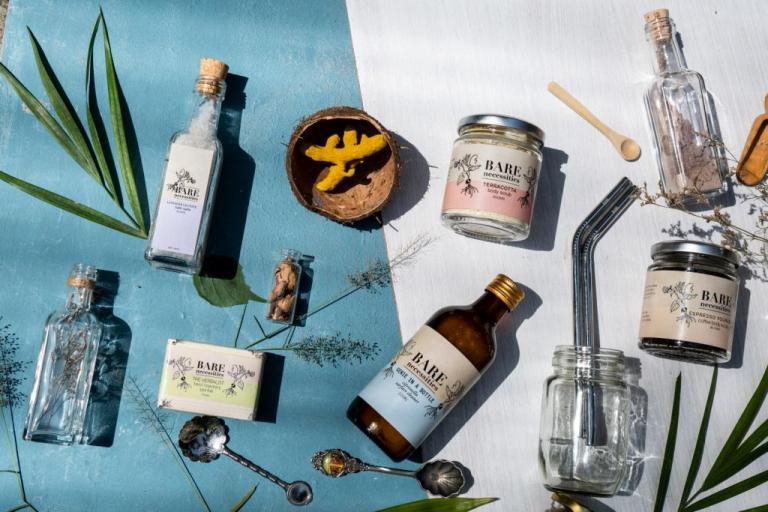 Q. As a social enterprise dedicated to sustainable solutions, how does Bare Necessities ensure the accessibility and affordability of its products to a diverse range of consumers?
Q. As a social enterprise dedicated to sustainable solutions, how does Bare Necessities ensure the accessibility and affordability of its products to a diverse range of consumers?
A. At Bare Necessities, our primary focus is on sustainability while ensuring that it is affordable and accessible to all. We use high quality, ethically sourced earth friendly ingredients, that are entirely free from plastic, both in composition and packaging.
We are rooted in a zero waste philosophy and look into the life cycle analysis of our products packaging to ensure that they have no negative impact on health and the environment. Bare Necessities ensures the accessibility and affordability of its products to a diverse range of consumers through various strategies, with one of the key points being the reduction of prices when certain scale milestones are achieved. When Bare Necessities experiences growth and reaches certain scale milestones, they lower their prices. This strategy is beneficial because economies of scale allow the company to optimize their production and distribution costs. By passing on these cost savings to consumers, the products become more affordable and accessible to a wider range of customers.
Q. With the FMCG industry facing various sustainability challenges, what future plans and innovations does Bare Necessities have in mind to revolutionize the industry and drive even more significant positive change in manufacturing, distribution, and consumption?
A. At Bare Necessities, we are looking to champion sustainability through our innovative products and services.
With our products, which are packaged in zero waste material and contain earth friendly ingredients, we are producing sustainable alternatives for a wide range of FMCG products. Right from personal care products to home care and lifestyle essentials, our aim is to offer consumers with accessible sustainable options.
Our designs are rooted in circular economy and we create circular packaging. By creating systems that reduce waste, we foster responsible and mindful consumption practices. We also boast a green manufacturing process. Our personal care products are handcrafted by our women run manufacturing team. We reuse our jars and source locally to reduce the carbon footprint caused due to shipping.
Awareness and knowledge sharing play a critical role in driving positive change. Therefore, we created a two pronged approach to handle this criss by offering not only zero waste products but also educational services. Our sustainability education initiative, Bare Learning, arms our audience with actionable knowledge about the environmental impact of their choices. By creating a well informed audience base, we are promoting responsible consumption habits.
By openly sharing our sustainability practices on our website, we are committed to maintaining a high degree of transparency and accountability in our operations. We are currently PETA Certified and are in the process of becoming BCorp Certified.
Our partnerships with reforestation organization Maruvan and waste warrior empowerment group Hasiru Dala demonstrate our commitment to making a positive impact. Customers can also contribute to these causes when making a purchase from our website.
Bare Necessities is not just a first mover in zero waste, but a thought leader. We aim to develop a scalable model that minimizes environmental impact and share our learnings with other entrepreneurs.
By creating stable green jobs, empowering underserved communities, and promoting financial inclusion, we champion social and economic progress. Our modular circular packaging prevents waste from polluting the environment, fostering a waste-free and microplastic-free future.
Recognitions such as being named a top five handcrafted brand by Harper's Bazaar and receiving the Google India Most Inspiring Indian title showcase our impact. With the grant, we will amplify our mission, revolutionize the industry, and inspire others to join us on this transformative sustainability journey. Together, we can build a cleaner and greener future.




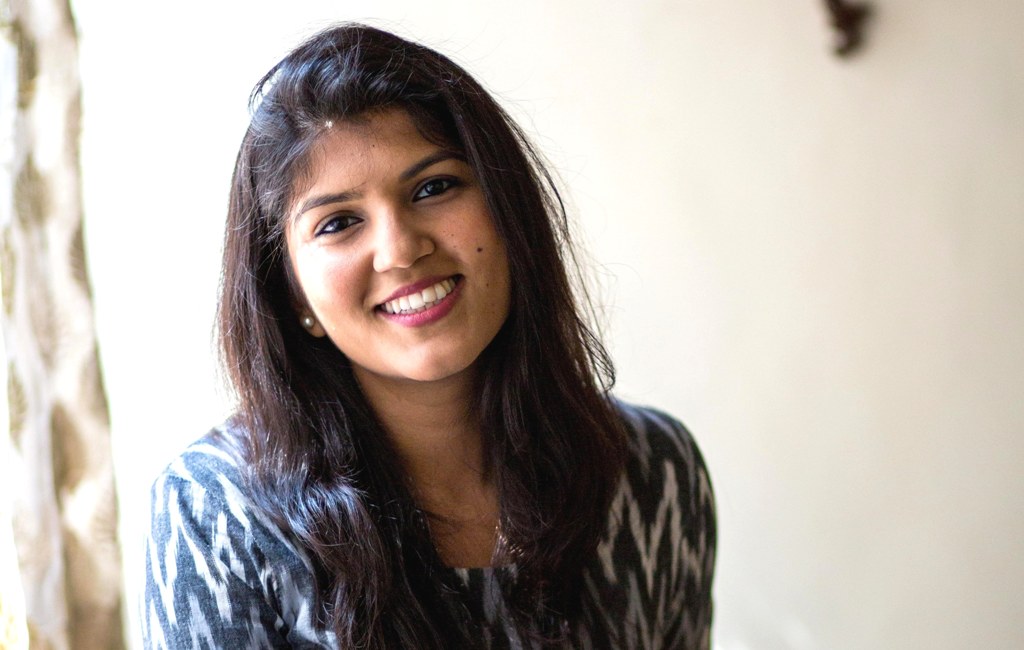
 A. I think I have subconsciously been an environmentalist since I was a little girl. Growing up in Bangalore, my love for nature was fostered spending weekends in Cubbon Park with my Dad and two big sisters, climbing trees and mostly falling off of them. My Dad would never miss his morning walk in Cubbon Park. Holidays for our family meant road trips, jumping into waterfalls, swimming in the beach, early morning walks, soaking in the sunsets and sunrises. Having lost him when I was very young, being in nature continued to be one way of remembering him.
A. I think I have subconsciously been an environmentalist since I was a little girl. Growing up in Bangalore, my love for nature was fostered spending weekends in Cubbon Park with my Dad and two big sisters, climbing trees and mostly falling off of them. My Dad would never miss his morning walk in Cubbon Park. Holidays for our family meant road trips, jumping into waterfalls, swimming in the beach, early morning walks, soaking in the sunsets and sunrises. Having lost him when I was very young, being in nature continued to be one way of remembering him. Q. As a social enterprise dedicated to sustainable solutions, how does Bare Necessities ensure the accessibility and affordability of its products to a diverse range of consumers?
Q. As a social enterprise dedicated to sustainable solutions, how does Bare Necessities ensure the accessibility and affordability of its products to a diverse range of consumers?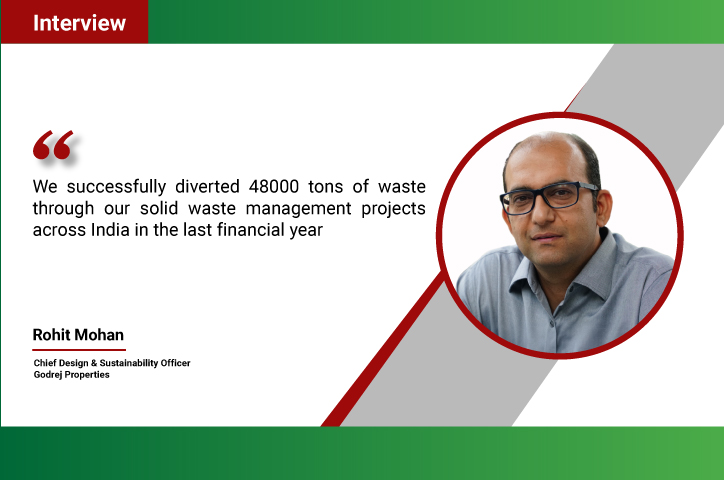
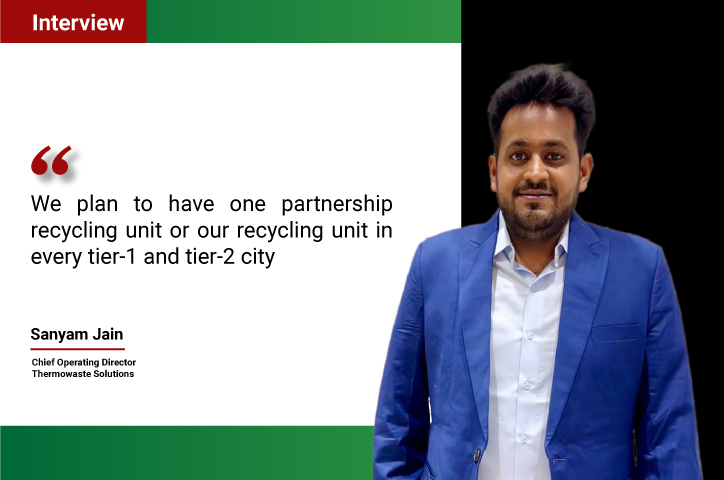
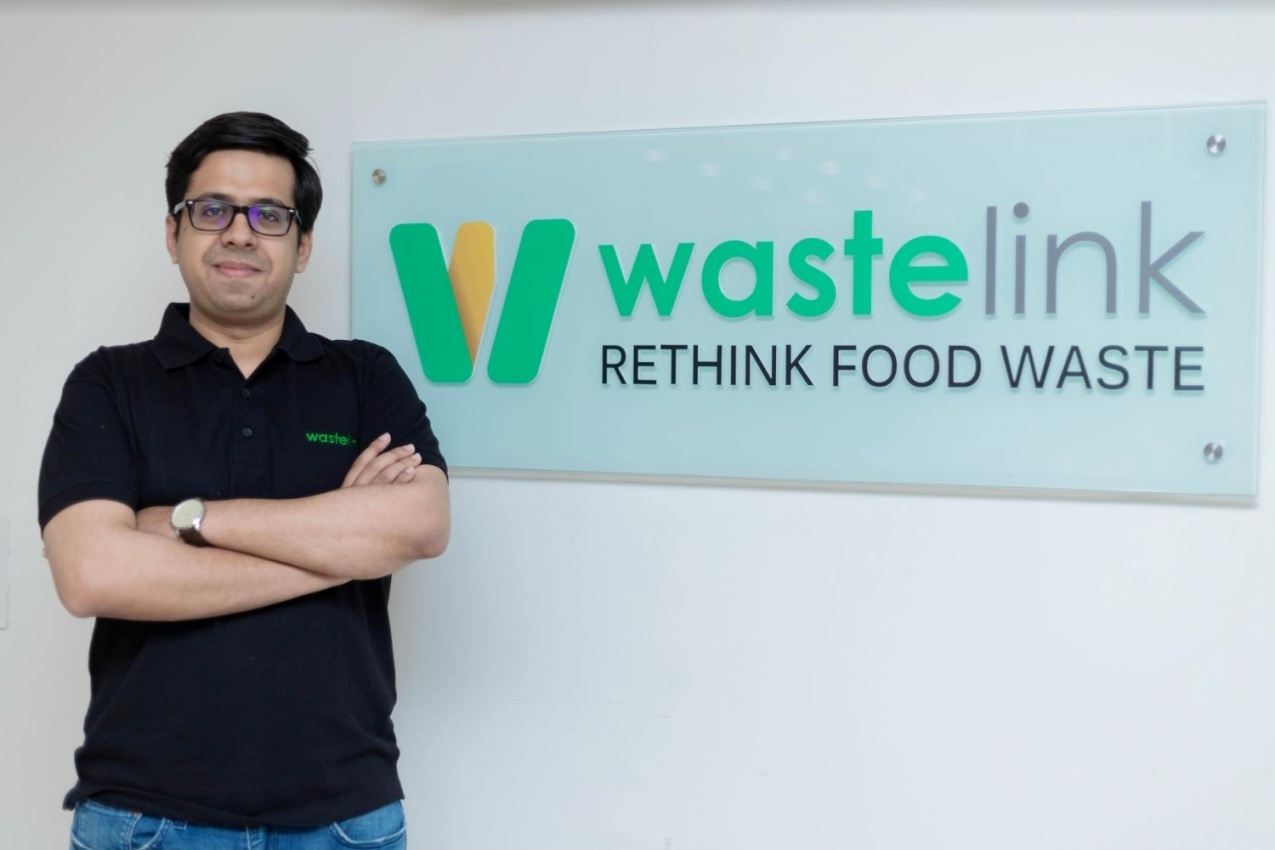
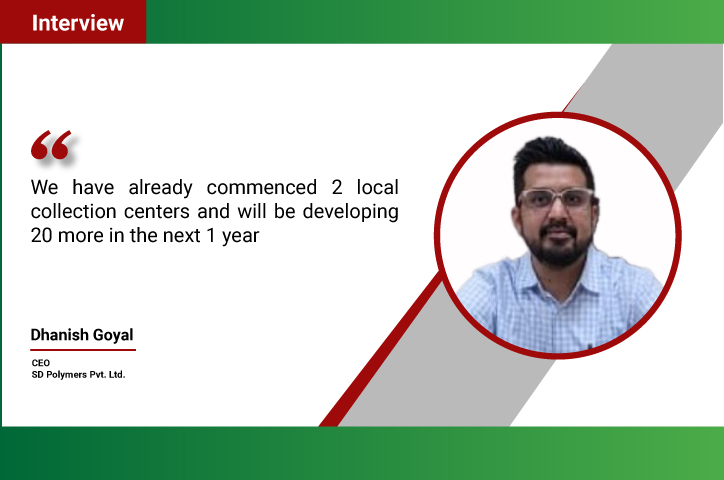
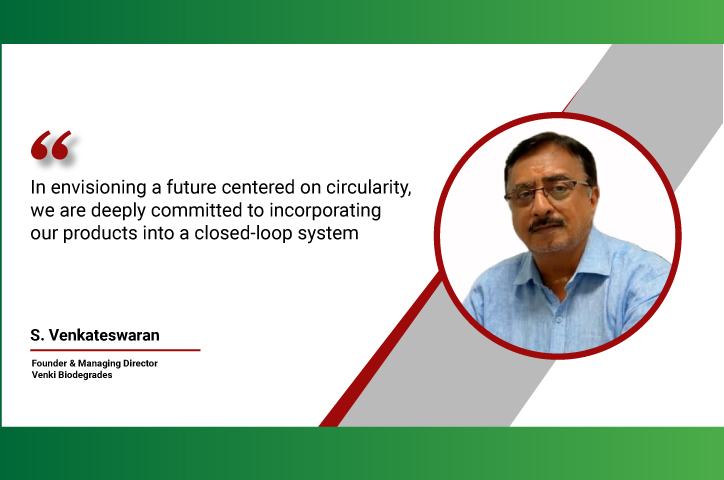
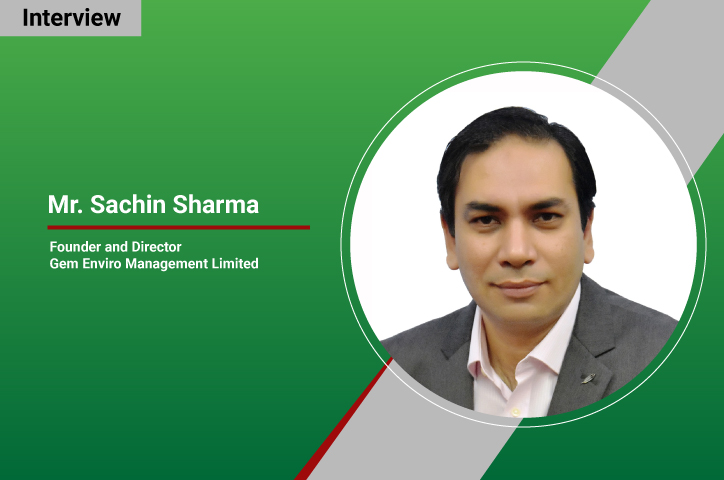
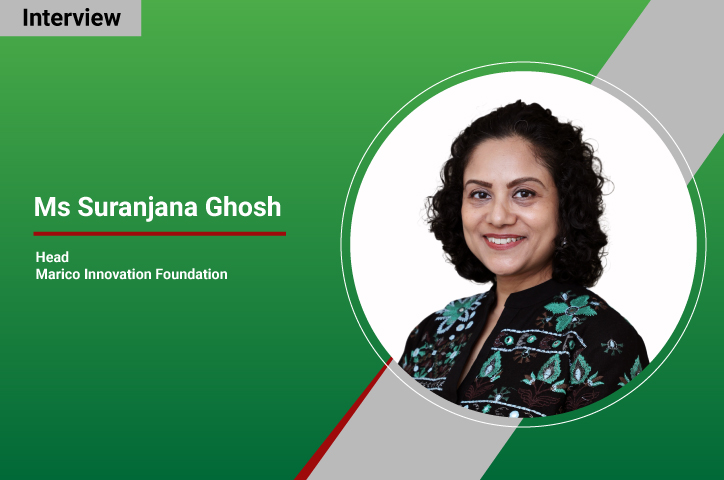
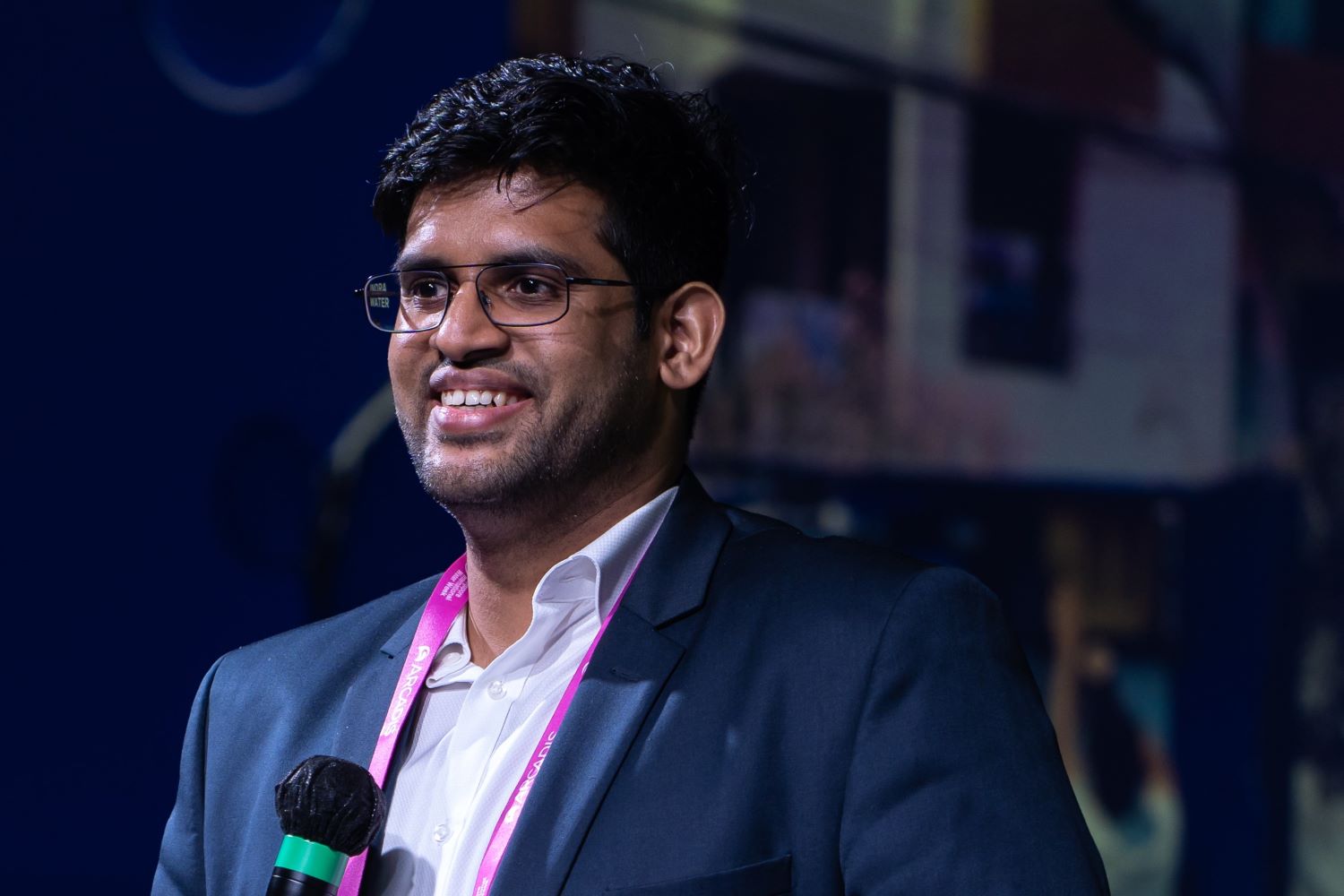







.jpg)



